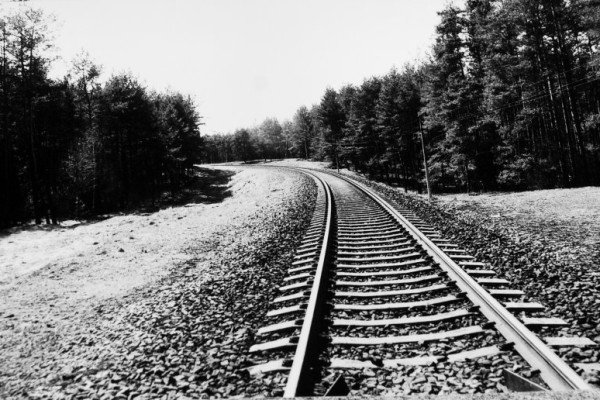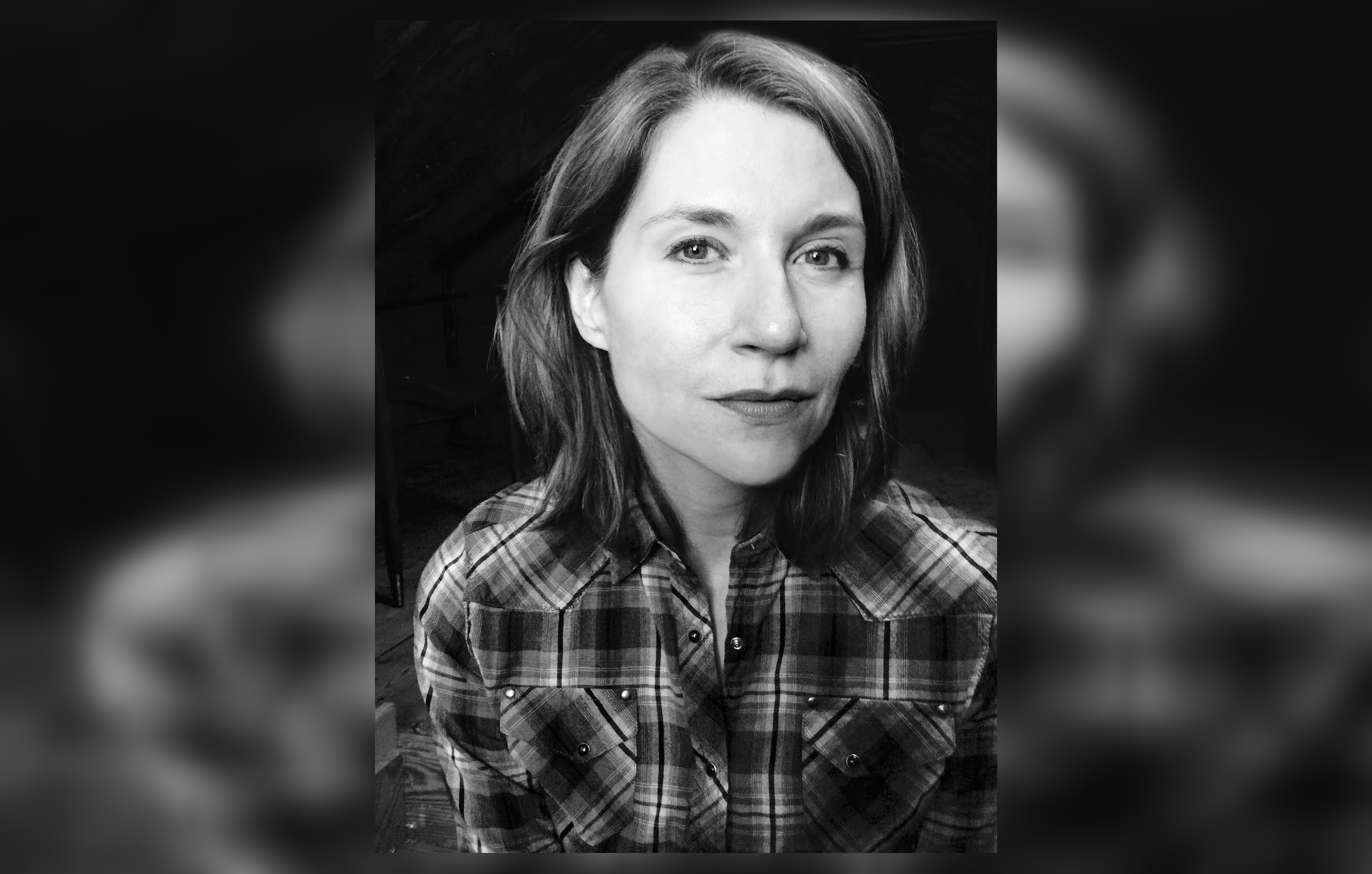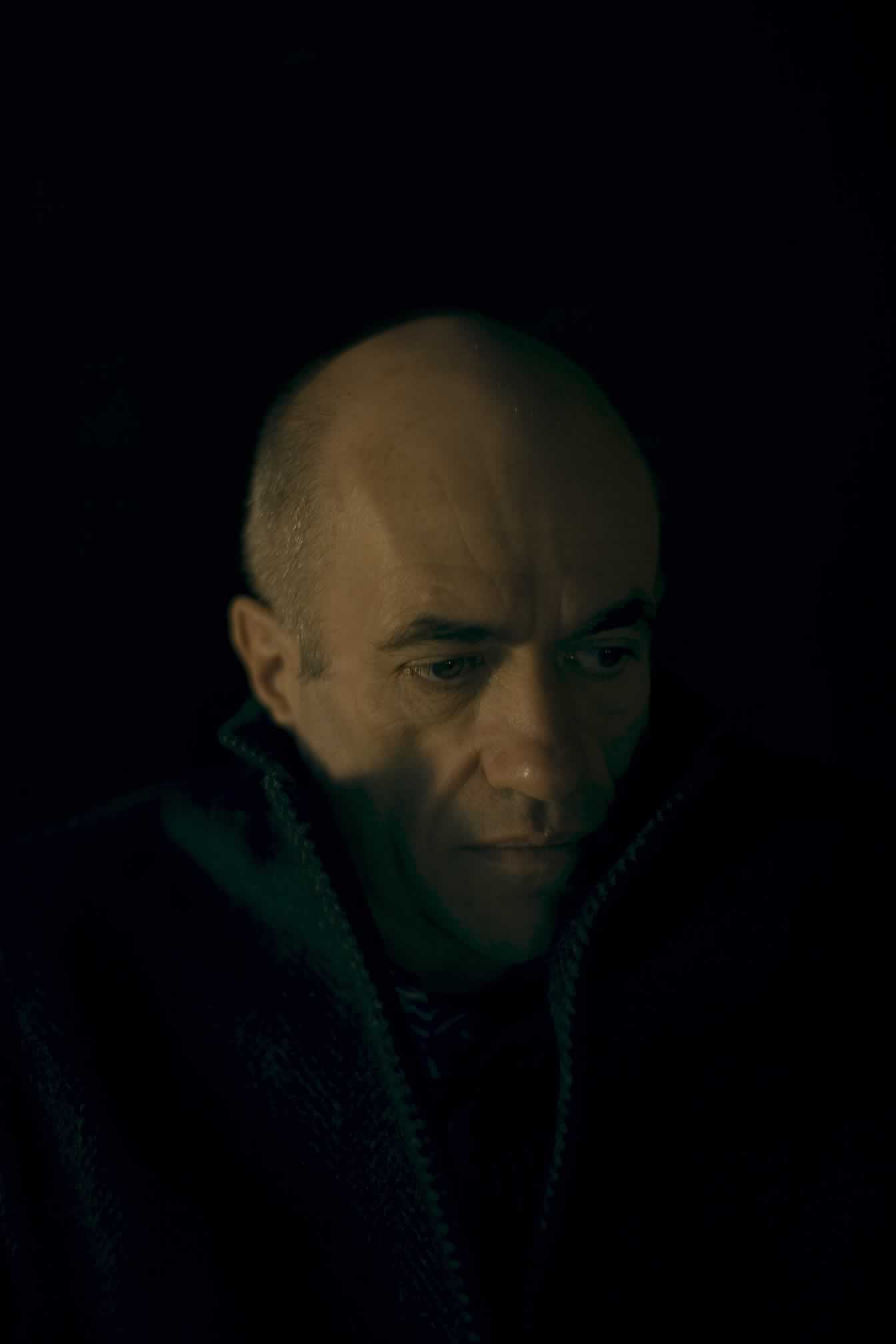Fiction by Jim Daniels
—
If he and Tammy hadn’t split, this never would be happening. This: Jesse trading his ‘73 Montego for three grams of coke. On the installment plan, one gram at a time, till Russell was convinced the car didn’t need some big repair job—he was suspicious of the engine’s tubercular rattle, the hacking smoker’s cough when you started it up.
The Montego was now just another transportation special sprinkling crumbs of rust on the rutted Detroit freeways, but Jesse had taken Suzie Q to the prom in it fifteen years ago when it was his father’s new car. In the backseat, he had hiked up the dress she’d sewn in Home Ec. that resembled a castoff from a luau on Gilligan’s Island. Suzie Q, who drank flavored vodka from a plastic flask and called him her Boy Toy during their brief, intense couplings over a period of two months. The next year, she dropped out of school pregnant with someone else’s baby. When he was maudlin with self-pity or lost in a halo of cocaine bliss. Jesse wished that it had been his. A child could have been an excuse for everything.
He began to tear up at the memory of Suzie Q as he stood in the middle of Rome St. and watched Russell wave, then lurch away in the sky-blue sedan that was no longer Jesse’s. He clutched the triangle of paper that contained the first installment. He knew he needed a bump immediato.
At age thirty, Jesse lived in an apartment above the garage behind his old friend Roger’s parents’ house, two blocks from where he grew up. His own parents’ house was now owned by a Chaldean couple and their happy, yappy kids—his mother had been comforted by knowing that the voices of children would be ringing through their old house again. “What about my voice?” he’d asked. Jesse had assumed that if he stuck around long enough, the house would be his. His parents just gave him a collective “huh?” and continued to pack and label the boxes of their lives that Jesse would no longer share.
Jesse turned to walk back to the apartment and saw Roger’s father in the front window fogging the glass at him and hammering an imaginary nail. Roger hammered is own nail in greeting, then climbed the stairs Roger had built to the loft above the garage and pushed up the spring-loaded hatch into the tiny, triangular apartment. Roger’s Roost, Jesse called it. He was full of self-mockery and lack of ambition. The drugs provided the spark to connect them, set his future aflame. A bathroom had been wedged into one of the corners. Jesse had to crouch down to pee as if he was whispering a shameful secret to the toilet.
*
Tammy’s brother-in-law Stoney was one of the largest coke dealers this side of Eight Mile Road, catering to white suburban youth who listened to rap and wore baseball hats in various rotations, depending on whatever black fashion was trickling over the border from Detroit. Tammy had access. Despite being married to Tammy’s sister Molly, Stoney had a soft spot for Tammy that had turned into a hard spot.
“What, you think all the coke we’ve been doing grows on trees?” Tammy shouted when Jesse caught her in flagrante detecto in her apartment—which Jesse had begun to think of as his—with Stoney.
He had a key, but she’d locked him out with the deadbolt. Jesse pounded at the door, glaring through its tiny window until finally he’d tried to crash his shoulder through the door like on TV, but unlike TV, well….his shoulder still hurt, six months later.
Eventually, Stoney casually walked out of the apartment past Jesse pouting on the landing, swaggering like Jesse’s pregnant Uncle Ralph (long story). He smirked at Jesse with the hard condescension of someone packing a gun, which Stoney, Jesse knew, always did, and Stoney knew that Jesse knew. Jesse wasn’t the violent type. His father once told him, “If you’re not going to college, the least you can do is try to kick some ass once in a while.”
For a number of semi-blissful months, Tammy had shared her nearly unlimited supply of coke with Jesse, so much that he could half-believe it did grow on trees, blossoming somewhere right outside the dorito of their apartment, though it opened onto a black tar parking lot, no tree in sight. They lived above the Powder Puff, an old-lady lingerie shop inexplicably still open among the vacant lots and pawn shops, the boarded-up Zoo, the topless bar where Stoney had met Molly .
Mr. and Mrs. Puff inexplicably loved Tammy. Jesse was the third guy to live above upstairs with her, so the Puffs were not surprised by his arrival or his departure, lost in their piles of granny underwear and the artificial odor of country sachets that wafted up through the vents into their apartment where even a nose full of coke could smell it.
After they moved in together, life was good, or at least it seemed that way during their long, slightly incoherent but enthusiastic sexual exploits and their equally long and even more incoherent—but deep, really deep—conversations that followed or preceded the morning light. Time itself got in a tizzy, all coked up, its hands like batons twirling in the hands of the sparkly cocaine twirlers.
Thus, Jesse had lost his job busing tables at The Clock, a 24-hour breakfast place at Eight Mile and Ryan, due to the un-working of his personal clock that clashed with the time clock, twisting up like the pretzel of that ampersand, cramping Stoney’s secret afternoon visits, and Stoney, who was used to getting uncramped by the manipulative stylings of Tammy, who came to count on the casually left ziplocks full of excellentamente coke. And thus, the afternoon of exposure on all levels that left Jesse in the darkroom of the street with his measly possessions stuffed into the Montego, sleeping in the parking lot of the abandoned Puritan Department Store further down on Eight Mile next to the tiny porn shop that still did brisk business—location, location, location. Jesse drifted off to sleep with “Sugar Buns” dancing in his head, for he had ducked in to spend a few bucks in a pitiful attempt to ease his loss of coke and sex and a place to live all at once, then waddling out, a less substantial man.
If he’d had health insurance, Jesse might’ve gotten his shoulder checked out. Instead, he began doing stretching exercises his father described to him over the phone from the trailer in Behindo Beach, FL, where his parents had moved after his father, The Duke, had retired from el General de Motros, abandoning him to the semi-mean streets, of Warren, MI. They got out of Dodge in their new Dodge and left the Montego and their semi-best wishes for their idiot son Jesse.
The Duke knew best. He’d sold his extensive gun collection before moving South. No need for hand grenades and land mines in Florida. He simply was The Duke, affectionately called that by his other, successful, college graduate children, while Jesse was not worthy of being a sidekick or even a saloon extra in any of The Duke’s imaginary films.
*
Jesse checked his phone for messages. Nadada. Nientito. He carefully unfolded the glossy paper triangle of a page from Playboy. He knew the coke came from Stoney via Russell, one of Stoney’s street-level dealers. It was a small, chummy little club of dealers, except for the occasional discreet murder. Except when not being discreet was the point. Jesse couldn’t figure it out when Tammy explained it. Nor when Tammy’s sister Molly (Moolah) explained it. Moolah was so coked out that Stoney himself had been considering checking her into rehab, having changed the lock on his magic briefcase to no avail. Jesse was missing all that—juice, drama—it was almost like being on TV. And now he had no TV in his garage penthouse, just a bum shoulder.
After scooping out a small pile of coke with his official coke spoon onto his official coke mirror, Jesse cut it into two thin lines with his official coke razor blade, then rolled up a dollar bill, bent down, and snorted. When he was still employed, he’d purchased the fancy kit at Heads Together, a head shop from the Sixties that was experiencing a revival in the coked-up eighties. His head began to come together—the magnet of his brain, the silver filings of the drug. Could he hock the kit to buy more coke?
*
Jesse galloomped down the sturdy wooden stairs that Roger’s workers had built and into gray November. He was vibrating slightly. The coke from Stoney via Tammy was much purer. This had been stepped on by Russell—perhaps with some speed or the classic baby laxative preferred by your smarter than average drug dealer, eh Boo-Boo?
Fallen leaves skittered over the sidewalk, crisp, brown, tuneful. Jesse had to find work, and prontito. But he was not worried now—the toots put movement in his boots. He just needed to find a job he could walk to, and a story for Roger next time he came to visit his parents and found out Jesse was two months’ behind on rent.
Unlike Jesse, Roger had a skill: he could build, construct, create something to rise above the flat grid of their streets and have someone gladly give him cash American dollars to live in these semi-permanent structures. In high school, he’d begun working for his father’s construction company, Basic Builders. Now, it was his company, and though he could build anything, he no longer had to get his hands dirty anymore, just like Stoney. Unlike with Stoney, you could not blow away a thousand dollars of his product with a poorly timed sneeze.
Jesse hammered the nail again as he passed in front of the house, a three-bedroom ranch identical to all the others in their modest subdivision. After Roger’s father had a stroke, he could only make guttural sounds. He sat at the window all day in his wheelchair and repeated the one gesture, raising his thin, white arm and bringing it down on the invisible nail—he’d known Jesse all his life and had even offered him a job when he graduated from high school. Jesse took the higher wages and lower expectations of el General, then got laid off from that job after ten years. He had taken The Clock job after unemployment ran out. His old buddy Roger was in charge of the construction company and knew better than to offer Jesse a job himself. Did the old man understand he’d just given his car away for a modest supply of drugs that might last a week or two if Jesse was careful? Jesse didn’t understand it himself.
Roger’s mother was the primary caretaker. When he was growing up, Jesse often wished she’d been his mother—the mother who baked oatmeal raisin cookies and sang Elvis songs and still looked good in a bikini. Unlike his own mother, who believed in astore-bought life and developed early-onset Lawrence Welk syndrome. Once, Jesse had broken their front window, not with a home run, but with an errant throw. He’d been that wild. The other kids all fled, but Jesse stood staring at the window until Roger’s mother had come out and dragged him inside for bread warm from the oven. Roger himself was inside with the chicken pox and shouted from his bedroom, “Nice throw, dufus.”
Now, Roger lived out in the smooth, sedate landscapes of Bloomfield Hills, where there were no hills but plenty of dollar bills. He’d built himself a lush little palace and rarely came this close to Detroit anymore except to check in on his parents. If there was any building going on, it was out there, in the vast stretches that used to be farmland when they were boys. An enormous condo complex sat where they had tried golfing one summer at Chilly’s Par 3 and Driving Range, the summer they got stoned together every day, and even golfing seemed like an adventure, smacking the balls as hard as they could just to hear the sound.
Roger knew all of Jesse’s bad habits, having quickly run through them himself while Jesse sank in their mire, a wallower, a frog on a lily pad in the pond of stoners at their high school. Ribbit, ribbit. He and Roger had been drinking and toking buddies until Roger grew bored while Jesse graduated into el drogas duros in the factory after graduation. It was a full-service drugstore. Needed to pull a double? See Mitch in Department 46. Need to crash, see Bobby in Department 18. Need to go AWOL on Planet Moonbeam? See E-Man in Department Zero. Jesse missed those guys from the plant—the layoffs had been like an early, unexpected high school graduation, all of them thrown onto the streets without a clue. He didn’t know where any of those guys even lived except in approximate vectors. They went out after work together to bars that were now closed. They never exchange phone numbers.
Roger was married to Steph, the queen of cheerleaders, and had two kids. Though he rarely lifted a hammer anymore, he maintained the muscular body of a construction worker. The family could have been models for the American Dream calendar. Jesse was stirred by numb jealousy, yet they had been best friends for many years, and Roger was renting him the garage attic for next to nothing, though that came with occasional free lectures on going clean during which Jesse sometimes wished Roger had Stoney’s gun and would just shoot him and get it over with. Roger might be kicking him out soon, and probably doing it too gently so that it hurt even more. For your own good. Jesse could already hear it. Tough love. The kind that cut through the bullshit that he’d counted on to get him this far. He had his parents’ phone number, but not their address, because they’d had his number for a long time.
*
Jesse was developing the Warren wobble, despite the cocaine weight-loss plan, a soft, subtle bump in the belly that would either harden into an egg or continue to balloon, depending on genes, luck, and the strict definition of a six pack. What about my voice? he sang loud on the vacant street full of strangers and ghosts. How about this voice? he said to the wind blowing long-distance toward Miscuto Beach, Zabuuti Beach, wherever the hell they were—they weren’t sending money for airfare and inviting him down for the holidays. He was the youngest of four, the other three pulling diamonds out of their asses and living the life large in Muchos Casos grandes far from where he stood, pausing across from the Belmont strip mall at the red light with no Walk sign. He took comfort in the coke drip in the back of his throat against the raw November wind, as familiar as anything in his life.
It was estupido, but Jesse couldn’t lose the affectation of talking to himself in fake Spanish. The Espanol Falso. The lenguapo of Jesse and Tammy during the months of happo niso. It was like the coke had caved in a part of his brain and trapped those nonsense words there forever. He was hoping that they’d suffocate, but they apparently had an air source. They were even building fires in that cave.
Jesse watched his breath rise into gray sky. He puffed like a choo-choo train. His slicked-back hair frozen in place, his one pair of black dress slacks whooshy against his legs—rayon, banlon, some kind of –on that did not need ironing. He wore his prized Tigers warm-up jacket and imagined himself as Sparky Anderson. Sparky, his hands in the pockets of that orange and blue jacket, heading out to the mound to make a pitching change. Bringing in Jesse in relief to pull his own life out of the fire and earn the save.
But he couldn’t be expected to go out there cold. He’d needed to warm-up. Thus, the bump. The future bumps. The gradual bumping into human shape again. Sparky had faith in him. Sparky was rubbing up the ball before handing it to him. The fans were chanting his name: Jesús, Jesús, Jesús!
Could he be his own savior? Why not, Jesse said aloud. Why fucking not?
*
Do you have any openings, and cracks, any fissures? For a job. Any kind of job, really. Is the manager here? Are you the manager? Am I the manager? A cold? No,. I’m fine. Don’t I look fine? Can I just fill out an application? Practice my impeccable printing? My last job? References? Experience? I’ve experienced capital L Life! People person? People is my middle name. Thank you, thank yeeew very much…..Jesse has left the building….
He entered seventeen stores and filled out five applications. He was hoping to land some seasonal work with Christmas coming up. Ho ho ho. Maybe he could go to Santa school. Though he’d need to put on a few pounds for that, thinned to a gaunt stick, a nervous, twitching flick.
*
Jesse needed another bump, but he’d left the coke in Roger’s Roost. He didn’t want to squander—he needed to wander. He kept walking past Creeper Street. He knew where he was going: The House of Chaldeans. To put in an application there. Detroit had experienced a large influx of Chaldeans, Christian Iraqis, many of whom worked in family party stores sprinkled throughout the city and suburbs. The Abbos, who bought Jesse’s parents’ house, owned one over on Ryan Road between Eight and Nine Mile. Some of the old neighbors were upset about his folks selling to Arabs, even Christian Arabs, but in the past few years, the spillover across Eight Mile included a number of black families, so the Abbos were now almost an afterthought. Old neighbors now cited Jesse’s parents for “getting out just in time” before “The Element” moved in. Jesse knew he was becoming part of The Element himself, living above a garage without a car.
He walked past Creeper Street—Jeepers, then Creepers, then Rome—the developer’s idea of a joke that only lasted one block, then creepered out—where Suzie Q had lived until dying in an accident five years ago that was either the result of drunk-driving or a deliberate murder caused by a spurned patron at the Booby Trap where she worked as a dancer. A hit-and-run as she crossed the street to her car—they wouldn’t allow her to take up a space in the bar lot, an upscale place with valet parking. At least she’d gone out on top of her game, Jesse thought. At least she had a game.
Her parents had both died since then, and her sad-sack brother Ted was living in the house now, filling it with his bowling trophies and porn while Jesse’s parents had down-sized him out, out-sized him down, and didn’t he deserve it. He used to tell himself that at least he wasn’t a loser like Ted. He needed another bump. Bumpo. Bumparooni. Bumpalicious.
Suzie Q—she sewed her own dance outfits, though they didn’t consist of much. Suzie Q, who adopted her stage name in kindergarten. Suzie Q, who was not embarrassed when Jesse walked in alone one day, paid the outrageous cover, then sat at the bar next to the runway so he could believe his own eyes. Who said, “Let’s talk when I’m on break.” But Jesse hadn’t stuck around for break. Suzie Q, where are you?
He was half-glad he’d gotten rid of the Montego, though Detroit was not for walkers, its mass transit a mirage of late or missing buses. Jesse was beginning to take comfort in his inability to leave, like a rusty set of clothes was hardening around him into decay, keeping him warm on familiar streets where he’d gut out another winter, his boots breaking through crusty snow, one after the other: still here, still here.
He wondered what Montego meant in Spanish and what he and Suzie Q would’ve talked about. He had two more grams coming from Russell as long as the Montego ran. The Bump. A bump. Just a bump to get over the hump. He’d tried to work it out with Tammy, but she told him he was pitifulo, then had Mr. Puff change the locks. Oh, to still be above the Puff! Or would Stoney have smirked him out of existence?. Like pro football players, drug dealers had short, lucrative careers. Like pro athletes, they had to protect their knees, their heads. More than anything, they had to watch their backs. Nobody saw Jesse as a threat to anything. Maybe the Duke was right. He was batting 0 for 3 in the refuge league—his parents, Tammy, Roger.
Jesse approached the sidewalk in front of the old House of Duke. The Chaldeans had cut down the crooked tree he used to climb. He never even knew what kind of tree it was. They’d had somebody grind the stump out—no trace of it. Traces. Jesse thought of the curled dollar bill in his pocket. He wasn’t feeling anything anymore—he willed himself not to lick the bill for residue. He willed himself to go up and ring the Abbos’ bell. What was he going to do, ask them for a job in their store? Ask if he could come inside and look around for the sake of nostradalgia?
He was Bump-less. Up the hump without a bump. He remembered doingThe Bump with Suzie Q at the prom. She was a good dancer, it was true. The osso bucco muscle in his shoulder was aching. His father’s exercises involved heat, and he had no heat.
He imagined his parents in their trailer in Kimono Beach baking in penetrating heat. The kind of heat that made you squint, and forget. He needed some of that heat, not the coke storm he was digging himself out of with his tiny spoon. Or into—more on the way. Why did that make him both happy and sad? Did cocoa leaves grow on trees? Or was that chocolate? He had no idea where cocaine came from. Maybe Santa’s elves were involved. Or persecuted Chaldeans.
He stood on the porch and looked down the street at the row of identical porches. How did he even know this was his old house, the tree ground to dust, the old English D for Dombowski removed from the storm door. Jesse thought he could see where it had once hung, a slightly paler shade of grime against the thin, corroded metal. A ghost of a D. The Duke’s palace ransacked by Jesse’s memories. Nothing to climb. Identity stolen by a check, an escape to Florida, by a windstorm of not-so-cheap thrills.
How long could he stand there unnoticed? He checked the numbers above the mailbox: 6357—the metal shiny and new, but they added up the same. The mailbox itself dusty with rust. Was it the one he’d placed his glasses in before fighting Roger? What had they fought over? Maybe he’d ask Roger about that. Maybe ask him for a job—out and out ask him. Beg him. Make him say no again, this time with feeling.
He had sold a car for three grams, and now he was exiled to the island of his birth now inhabited by—wait, had he really just sold a car for cocaine? Even Tammy would’ve thought that was crazy, and she was giving up her body for it and betraying her own sister in the process. In Loco Parentos. El Coco Loco. He had never injected anything into his veins, though Tammy had. He could hammer in an invisible nail.
Was there room at the inn? At the Ground Zero Motel? He was suddenly exhausted, and thought he could fall asleep right there. Shrink himself into the mailbox or curl up on the stoop like a worn-out dog who’d come home after running away. He breathed out and watched the steam rise in the gray dusk. He felt like the last steam engine on earth. Maybe the Abbos would be eating. Would they invite him in, offer him some hummus, some baba ganoush. Maybe they would call the police.
Jesse rang the bell at last, his numb finger tingling in the cold. He heard the muffled voices of children and the clomp of approaching feet. “Who’s the strange man?” a child said, appearing in front of a flung curtain in the window next to the door. Jesse smiled, happy at last to be recognized.
—
Jim Daniels’ latest book of poems, Birth Marks, was published by BOA Editions in 2013 and was selected as a Michigan Notable Book. His next book of short fiction, Eight Mile High, will be published by Michigan State University Press in 2014. A native of Detroit, Daniels teaches at Carnegie Mellon University in Pittsburgh.
—
Featured Image photograph by E.B. Bartels, www.ebbartels.com.




